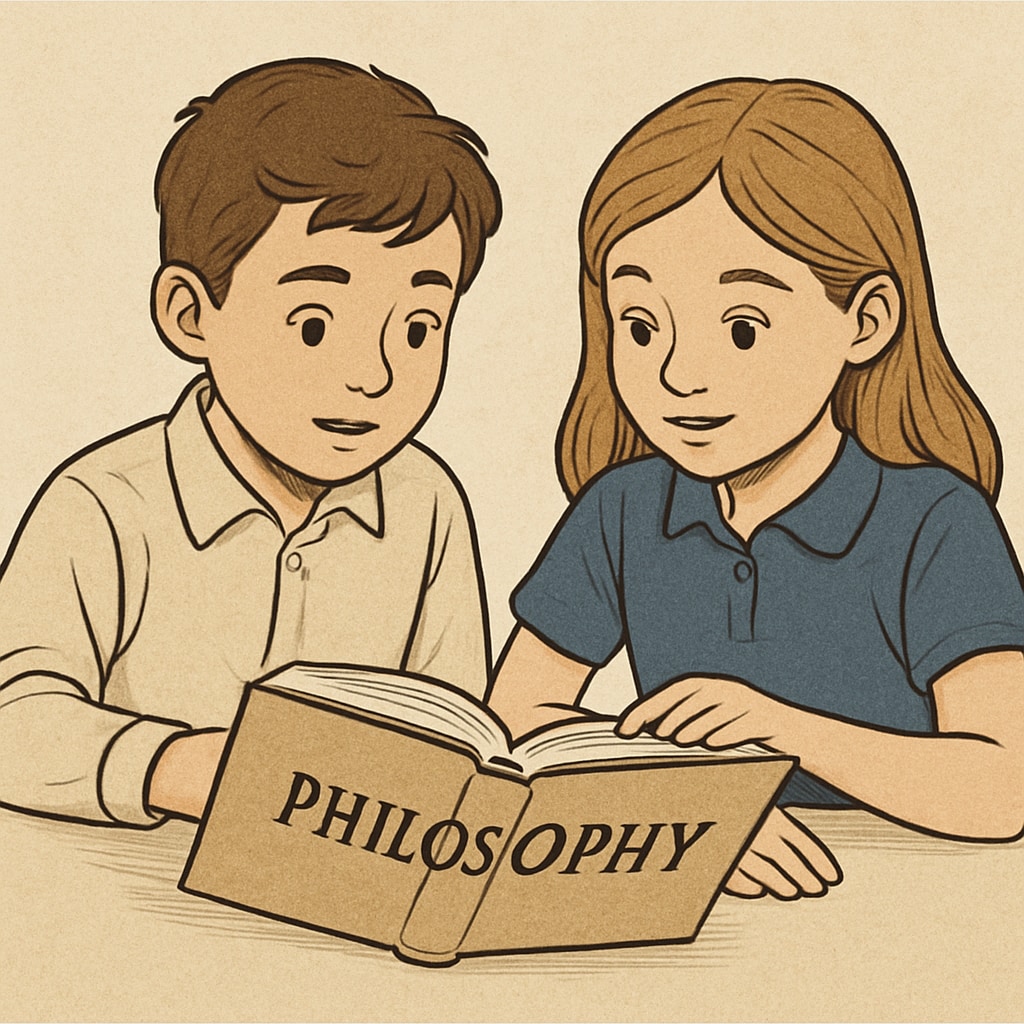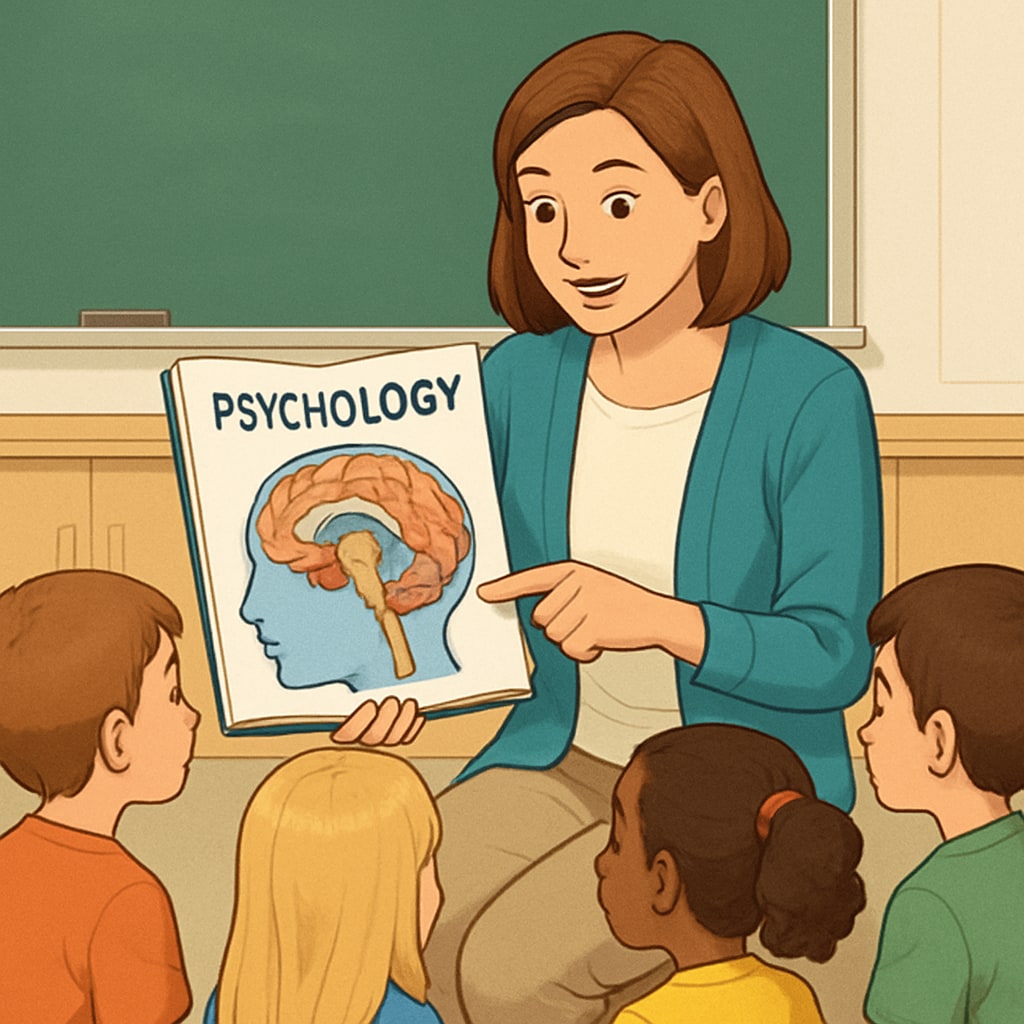Introducing psychology and philosophy during the K12 years can help children develop critical thinking skills, empathy, and a deeper understanding of the world. With the right self-study resources, parents and educators can effectively guide young learners to explore these profound disciplines in a non-academic setting. This article outlines practical ways to make psychology and philosophy accessible to children, offering curated resources and actionable advice.
Why Teach Psychology and Philosophy to K12 Students?
Psychology and philosophy may seem like advanced subjects, but their foundational concepts are highly relevant to young learners. Psychology introduces children to understanding human behavior, emotions, and thought processes, which can enhance their interpersonal skills. On the other hand, philosophy encourages them to ask fundamental questions about life, ethics, and logic, which builds their reasoning abilities.
For example, teaching basic psychological concepts like emotional intelligence can help children navigate their feelings and relationships. Similarly, introducing philosophical themes, such as “What is justice?” or “What makes a good life?” can spark meaningful discussions. These subjects lay the groundwork for lifelong skills like empathy, critical thinking, and decision-making.

How to Start with Psychology and Philosophy
To make these subjects engaging for children, it’s essential to start with age-appropriate materials and methods. Here are some practical tips:
- Introduce Story-Based Learning: Use stories to explain abstract concepts. For example, books like “Sophie’s World” by Jostein Gaarder provide a narrative introduction to philosophy.
- Utilize Visual Media: Short videos or animations on psychological and philosophical topics can make learning more interactive.
- Encourage Open Dialogue: Discuss real-life scenarios and encourage children to express their thoughts. For instance, ask, “Why do you think people feel sad?” or “What makes a decision fair?”
Additionally, parents and educators can use online platforms to find structured lessons. Websites like Britannica’s Psychology Overview and Stanford Encyclopedia of Philosophy are excellent starting points for free, reliable content.
Top Self-Study Resources for Young Learners
To support independent learning, here are some beginner-friendly resources tailored for children and teenagers:
Psychology Resources:
- “The Psychology Book” by DK: This illustrated guide simplifies complex psychological concepts for young readers.
- Mindfulness Apps: Apps like Headspace teach children emotional regulation and self-awareness, bridging psychological theory and practice.
Philosophy Resources:
- “Big Ideas for Curious Minds” by The School of Life: This book introduces philosophical ideas through relatable examples and questions.
- Philosophy for Kids: A workbook that provides discussion-based exercises on topics like ethics, logic, and metaphysics.
These resources are designed to be engaging and accessible, making it easier for children to grasp fundamental ideas. Parents can also participate by reading along or discussing the materials with their children.

Practical Tips for Parents and Educators
Integrating psychology and philosophy into a child’s routine doesn’t have to be overwhelming. Here are some actionable strategies:
- Create a Question Box: Encourage children to write down questions about life, behavior, or ethics. Discuss these questions during a set time each week.
- Use Everyday Examples: Relate psychological or philosophical concepts to daily life. For instance, discuss the idea of fairness when dividing chores or treats.
- Incorporate Games: Play games like “Would You Rather?” to explore ethical dilemmas or use role-playing to understand emotions better.
By making learning interactive and relatable, children are more likely to engage and retain information. Over time, these discussions can help them build a strong foundation for critical thinking and self-awareness.
Conclusion: Empowering Young Minds
Incorporating psychology and philosophy into K12 education is a meaningful way to nurture thoughtful, empathetic, and critical thinkers. With a plethora of self-study resources and interactive methods available, parents and educators can make these disciplines both accessible and enjoyable for young learners. By starting early, we equip children with tools to better understand themselves and the world around them, setting them up for lifelong growth and success.
If you’re ready to begin this journey, start with the recommended books and online platforms mentioned here. Remember, the goal is not to teach everything at once but to spark curiosity and encourage exploration.


